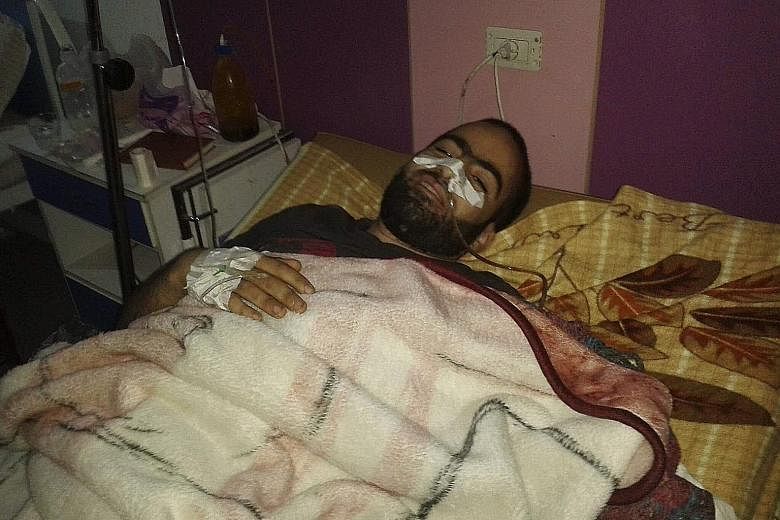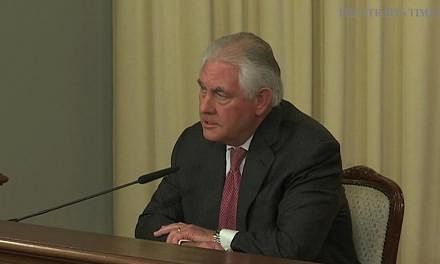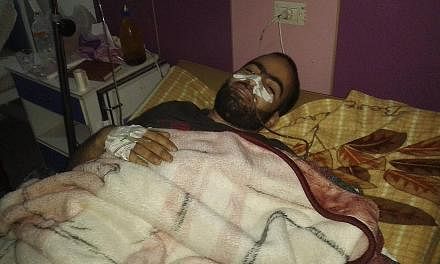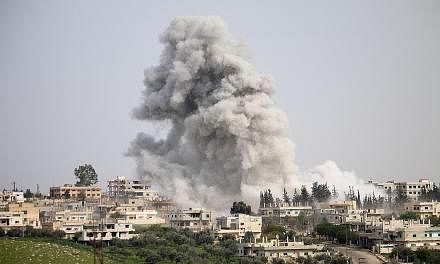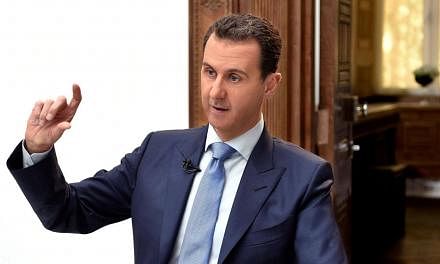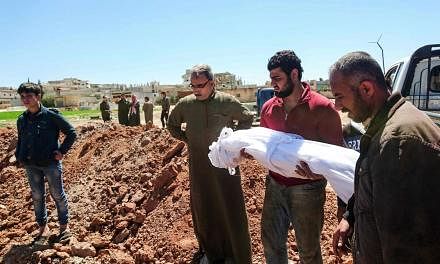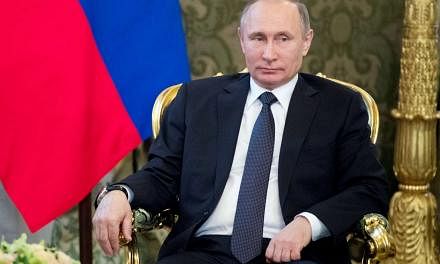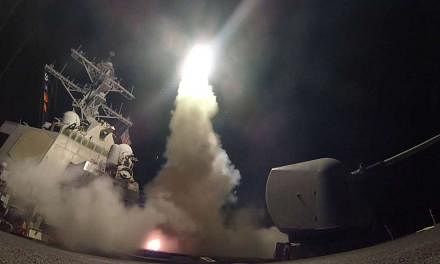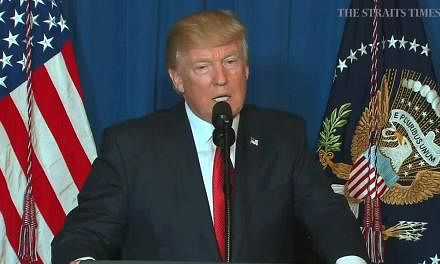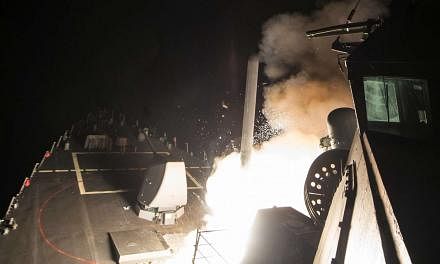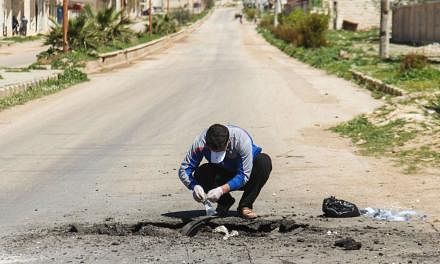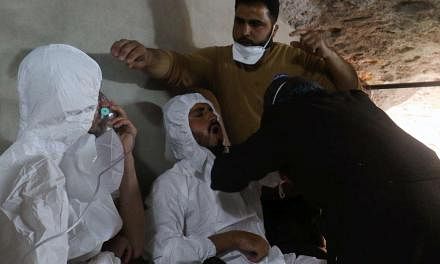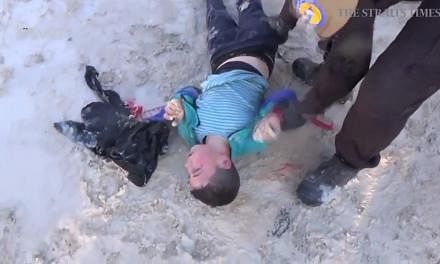ISTANBUL • Six years of war in Syria have ravaged Mr Ebrahim Abbas' life.
The 27-year-old, a computer technician, was detained for protesting against the Syrian government, besieged in his home town and shot in the abdomen. He also watched his brother die in a shelling attack.
He escaped but his father, a diabetic, died later because of a lack of medicine, and his mother was killed by a sniper.
It was from his refuge in Turkey that Mr Abbas heard about United States President Donald Trump's decision to launch 59 cruise missiles at a Syrian airbase to punish President Bashar al-Assad for a chemical weapons attack.
It felt good. "Watching a world power taking revenge for civilians against the Syrian regime gave me a surge of hope and made me a bit optimistic," Mr Abbas said.
But the attack will not bring back all that he has lost, nor help him return home soon.
Ms Yasmine Mashaan, a pharmacy technician from the town of Muhassan in eastern Syria who lost several brothers to the conflict, said the strike was unlikely to change much for her and her family. And she doubts Mr Trump's motivations.
"It would be great if he continued this in the direction of saving more civilians or establishing a safe zone, but after his racist speeches and anti-refugee policy, I think the strike is more for popularity," said Ms Mashaan, who is in Germany after fleeing there with her family.
The number affected by the conflict boggles the mind. What began as an uprising in 2011 escalated into a civil war as protesters took up arms to respond to the government's repression and seek its ouster. Now, more than 400,000 people have been killed, while many more have been maimed.
Even some Syrians who welcomed the strike questioned why, after all of the war's brutality, it was last week's chemical attack that brought a show of force against Mr Assad.
"Of course chemicals are weapons of mass destruction," said a doctor east of Damascus who treated victims of the first major chemical attack in Syria, in 2013. He spoke on condition of anonymity because he feared government reprisal.
"But what about sieges? What about killing children? Isn't it wrong for children to grow up without knowing Tom and Jerry? Without knowing chocolate?"
The strike by the US made him mildly optimistic that Mr Trump would intervene more forcefully than former president Barack Obama had. "Trump is a closed box that has started to open. Soon we will see what is inside."
NYTIMES
